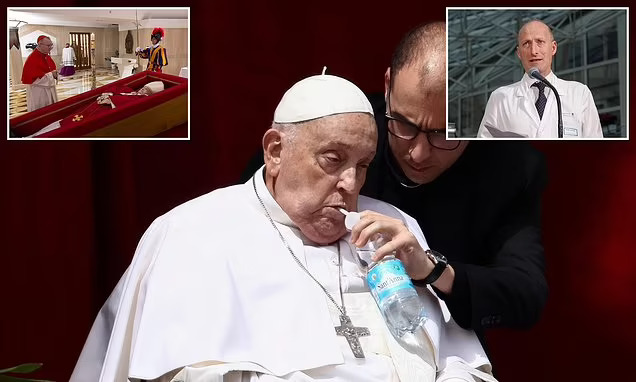
The head of Pope Francis’s medical team, Dr. Sergio Alfieri, has shared poignant details about the late pontiff’s final hours, describing a peaceful passing on Easter Monday morning.
Francis, 88, died suddenly and without suffering, according to Dr. Alfieri, who had previously treated the Pope for pneumonia at Rome’s Gemelli Hospital earlier this year. Despite surviving that illness, his death came as a shock.
Speaking to Corriere della Sera, Dr. Alfieri recounted receiving an urgent call at around 5:30 a.m. on Monday, summoning him to the Vatican. When he arrived 20 minutes later, he found Pope Francis conscious but unresponsive.
“I entered his room, and he had his eyes open,” Dr. Alfieri said. “I checked his breathing—there were no signs of respiratory distress. I called out to him, but he didn’t respond. In that moment, I knew. He had slipped into a coma. There was nothing more we could do.”
In a separate interview with La Repubblica, Dr. Alfieri revealed that some present considered rushing the Pope back to Gemelli Hospital, but he advised against it. “He would have died on the way,” he said. “Even with a CT scan, we may have gotten a clearer diagnosis, but it would have changed nothing. It was the kind of stroke that takes a person in an hour.”
Though Pope Francis had recovered from pneumonia, his sudden passing surprised many. Just a day earlier, he had appeared to be recovering well, greeting crowds from the popemobile in St. Peter’s Square on Easter Sunday. He even met briefly with U.S. Vice President JD Vance that same day.
After returning to the Vatican on March 23 following a 38-day hospital stay, doctors had prescribed two months of rest. Yet Francis, ever devoted to his duties, continued working, including a visit to a Rome prison on Holy Thursday, April 17.
Dr. Alfieri emphasized that the Pope didn’t overextend himself. “He was the Pope,” he said. “For him, returning to his duties was part of his recovery. He was never in danger.”
The doctor last saw Francis on Saturday afternoon. “He seemed very well,” Alfieri recalled, sharing that he had brought the Pope one of his favorite pies. “He told me, ‘I am very well. I’ve started working again, and I like it.’”
Dr. Alfieri also shared a deeply personal moment—the Pope’s final regret.
“Though he was glad he could visit the prisoners, he told me he was sorry he couldn’t perform the foot-washing ritual for Holy Thursday,” Alfieri said. “His last words to me were, ‘This time I couldn’t do it.’”
“He wanted to be Pope right up to the end,” Alfieri added. “And he never let us down.”

 Mzansi xxx
Mzansi xxx